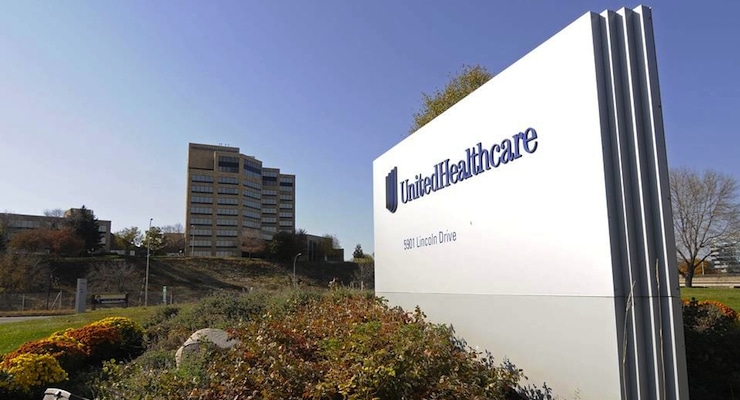
What’s Next for ObamaCare and the People Who Never Wanted It?

UnitedHealth Group Inc. headquarters based in Minnetonka, Minnesota. (Photo: Associated/PressAP)
United HealthGroup Inc. (NYSE:UNH), the nation’s largest insurer announced Tuesday it would bail on all but a “handful” of ObamaCare exchanges in 2017.
“It’s a big nothingburger in terms of market impact,” said insurance industry consultant John Gorman, a health official during the Clinton administration. “But symbolically and politically, it’s huge.”
However, while it’s certainly true that the deeply unpopular law collapsing under it’s own weight will have political ramifications, the economic impact is far from a “nothingburger.” In fact, according to a new study conducted by the nonpartisan Kaiser Family Foundation, it will have a rather significant and negative impact on the entire healthcare sector.
“The significance of United leaving the exchange market would vary substantially by state and could have a significant effect in some markets,” the Kaiser study said.
The decision by UnitedHealth leaves 11% of ObamaCare enrollees with just one insurer and another 18% with just two choices. The company offers plans on ObamaCare exchanges in 34 states but offered plans in just four states in 2014; 23 states in 2015; and 34 this year.
According to the Kaiser Foundation, the company represents only 6% of ObamaCare consumers overall, something the Obama administration was quick to point out.
“The number of issuers per state has grown year over year,” HHS spokesman Benjamin Wakana said Monday. “With millions of Americans insured through the marketplaces, it’s clear that this is a growing business for insurers, and it’s a product consumers want and need. The marketplace should be judged by the choices it offers consumers, not the decisions of any one issuer.”
However, UnitedHealth isn’t the beginning or the end of the law’s troubles. To date, more than half of the 23 nonprofit startup health plans seeded with ObamaCare loans collapsed financially, which indicates that consumers aren’t at all happy with the choices Mr. Wakana referenced. Individual plans lost more than $3 billion in 2014, the first year the exchanges were up and running, according to filings, while profits at Blue Cross Blue Shield plans plummeted 75% from 2013 to 2015, according to a report by A.M. Best Co.
Unlike UnitedHealth, which took a more conservative approach, plans offered by Blue Cross Blue Shield don’t just represent a small portion of the marketplace but rather dominate many state exchanges.
Regulators confirmed they are completely abandoning exchanges in Missouri, North Carolina, Pennsylvania, Tennessee and Washington state, while partially withdrawing from Georgia. But the Kaiser Foundation study concluded a full exit by UnitedHealth will result in ObamaCare enrollees paying more, depending on how the company priced its plans in their markets and despite current premiums increases.
Monthly premiums for the second-lowest-cost silver plan would be $25 to $100 higher for a 40-year-old in roughly 300 counties and more than $100 higher in 13 counties.
Mr. Wakana said insurers will enter and exit the marketplace, but it has “full confidence” that the Affordable Care Act will thrive for years to come. Whether that turns out to be the case remains to be seen.





